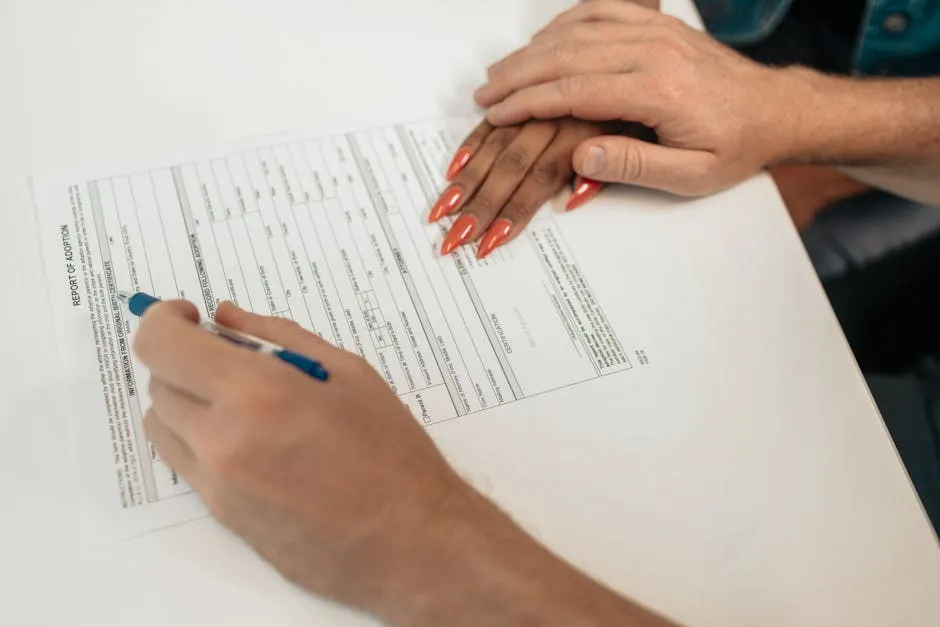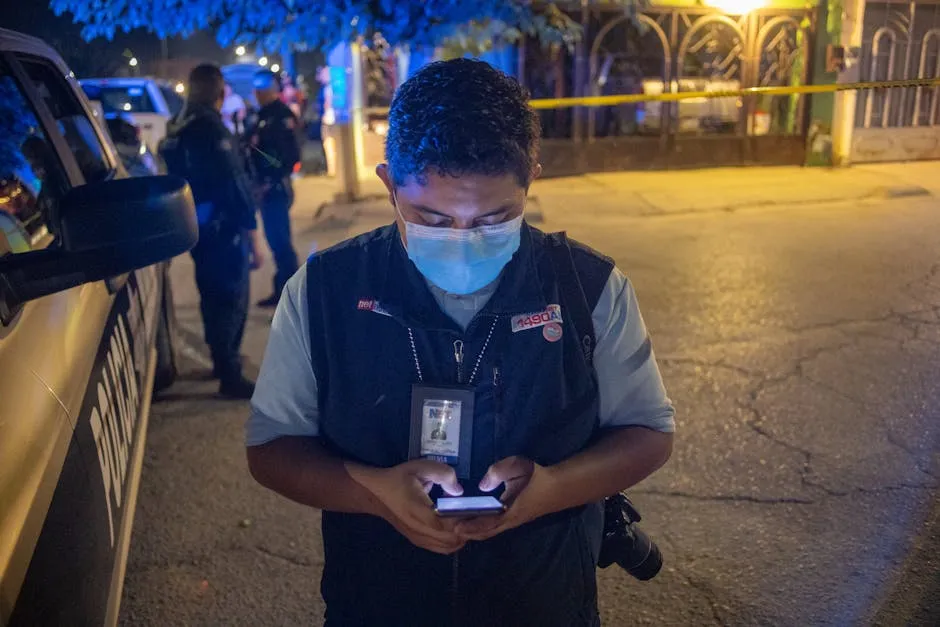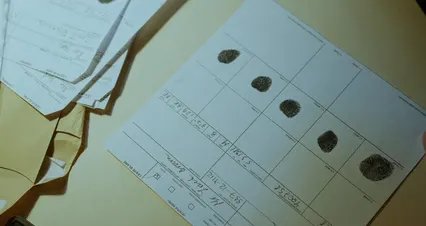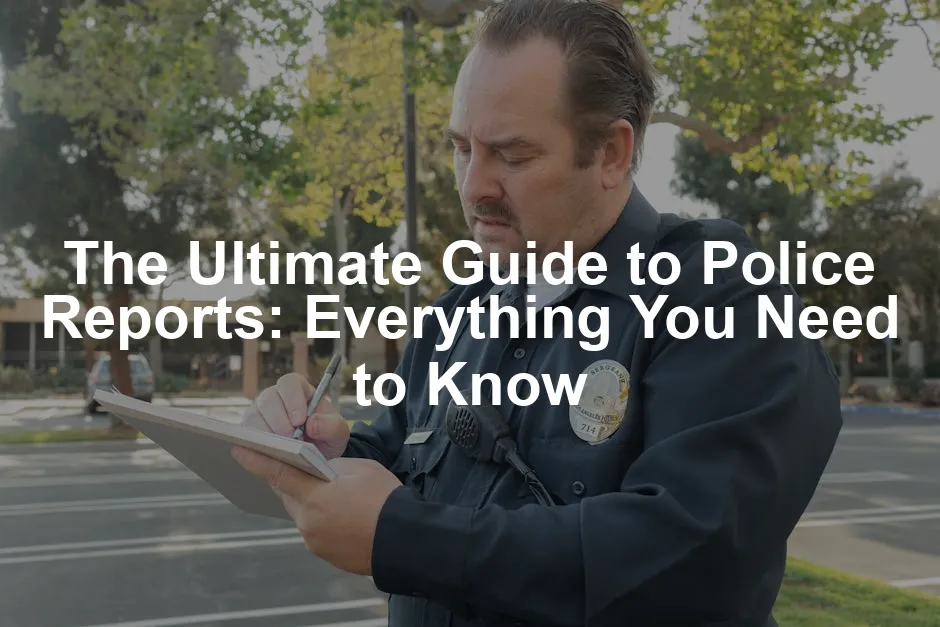Introduction
In a world where crime and misdemeanors can affect anyone, knowing how to file a police report is crucial. Whether you’ve been a victim, witnessed an event, or simply want to report suspicious activity, understanding the ins and outs of police reports can empower you. But let’s be real: navigating the bureaucracy can feel like trying to get through a maze blindfolded. Fear not! This guide will illuminate your path, providing clarity on everything from basic definitions to complex filing procedures. So grab your notepad—it’s time to make your voice heard!
And speaking of notepads, if you’re serious about documenting incidents, consider investing in a Police Report Notebook. It’s the perfect tool to ensure you capture every detail accurately—because let’s face it, your memory might be better suited for remembering pizza toppings than police details!

Summary
This comprehensive guide dives deep into the realm of police reports. You’ll learn about the importance of filing a report and the various types of incidents that warrant one. We’ll take you through the step-by-step process of how to file a police report, whether in person, online, or via phone. You’ll gain insights into the required information, common challenges faced during the reporting process, and what happens after your report is submitted.
Additionally, we will cover the significance of police reports in the legal system, touching upon how they influence investigations and court proceedings. From understanding hate crimes to the protocols for domestic abuse reporting, this guide aims to equip you with knowledge that is not only useful but essential. By the end, you’ll not only know how to file a report but will also feel empowered to advocate for justice in your community. Curious about the nuances of different types of reports? Let’s dive in!
For a detailed understanding of the importance of summary statistics in analyzing incidents, check out this summary statistics table.
Understanding Police Reports
What is a Police Report?
A police report is a formal document that records details about a crime or incident. It serves multiple purposes: documenting incidents, providing evidence, and facilitating investigations. For victims and witnesses, these reports are crucial. They help articulate what happened, ensuring their voices are heard. Law enforcement also relies on these reports to piece together events and build cases. Without them, the path to justice can feel like running in circles.
Imagine you’re at a party, and someone spills red wine on your favorite white shirt. You need witnesses to back you up when you confront the wine-spiller! Similarly, police reports are vital for establishing the facts and supporting investigations.

Types of Police Reports
Police reports come in various forms, each tailored to specific incidents:
- Criminal Complaints: These document illegal activities, ranging from theft to assault.
- Traffic Accidents: Reports detailing collisions, injuries, and damages on the road.
- Domestic Violence Reports: Documents that capture incidents of violence or abuse within relationships.
- Hate Crime Reports: These tackle crimes motivated by prejudice against specific groups, ensuring proper attention is given.
- Environmental Violations: Reports related to breaches of environmental laws, such as illegal dumping or pollution.
Each type of report serves a distinct purpose and ensures that all aspects of law enforcement are covered. If you’re interested in going deeper into this subject, consider reading a Crime Prevention Tips Book to enhance your understanding of how to stay safe and avoid becoming a victim!
The Legal Framework Surrounding Police Reports
Laws govern how police reports are created, stored, and used. These regulations ensure that the rights of individuals are maintained while also allowing law enforcement to investigate crimes effectively. For example, in many jurisdictions, police must file a report whenever they respond to an incident. This process is crucial for legal proceedings. A solid police report can serve as a foundation for prosecution, helping courts understand the context and details of a case.
In some instances, if a report is mishandled or incomplete, it can compromise a case. Therefore, the legal framework surrounding these documents is essential for maintaining justice and accountability. If you’re looking for a resource to help you understand your rights, check out the Legal Rights Book for Victims. Knowledge is power, after all!

How to File a Police Report
In-Person Reporting
Filing a police report in person can be straightforward. Start by locating the nearest police station. In cities like Hamburg, this can be done easily online or via phone. Once there, expect a friendly officer to assist you. Bring any documentation related to the incident. This might include photographs, personal notes, or witness information. The more details you provide, the clearer the report will be.
Upon arrival, you’ll likely fill out a form detailing the incident. Don’t worry; officers are trained to guide you through this process. It’s like ordering coffee—just tell them what you want, and they’ll help make it happen!

While you’re at it, consider carrying a Personal Safety Alarm. It’s a simple yet effective tool to have on hand in case you feel uneasy—because safety first, right?
Online Reporting
Many regions now offer online reporting services. In Hamburg, for example, residents can file reports through dedicated police websites. Simply navigate to the online police station, fill out the required fields, and submit your report. It’s that easy!
However, be aware that online services might not cover all incidents, especially those requiring immediate police presence. If you’re unsure, it’s wise to check local guidelines. While online reporting is convenient, it can also come with challenges, such as technical issues or limited access for those unfamiliar with technology.

And speaking of convenience, don’t forget to keep your devices charged! An Emergency Phone Charger can be a lifesaver in critical situations. No one wants to be stranded with a dead phone when they need help!
Phone Reporting
When in doubt, pick up the phone! Calling the police is a viable way to report incidents. Use this method for emergencies or when you need immediate assistance. Provide as much detail as possible, including who, what, when, and where.
Remember, there’s a distinction between emergency and non-emergency calls. For urgent matters, dial the emergency number—like 110 in Germany. For less critical issues, there’s usually a separate number to reach your local police.

And while you’re at it, consider using a Digital Voice Recorder to capture important conversations. You never know when a crucial detail might slip your mind!
Special Considerations
Some incidents require special handling. If you’re concerned about anonymity, inquire about confidential reporting options. This option is essential for sensitive situations, like domestic violence or hate crimes.
Additionally, if the report involves a minor or vulnerable individual, specific protocols may be in place. It’s crucial to understand these nuances, ensuring that everyone feels safe and supported throughout the reporting process.
By grasping the above elements of police reports, you’re now better equipped to navigate the complexities of filing one. Remember, each report is a step toward justice and accountability!

After Filing a Police Report
What Happens Next?
Once you’ve filed a police report, the wheels of justice start turning. The investigation process kicks off like a well-rehearsed dance. Police officers will gather evidence, interview witnesses, and analyze any leads. They’re like detectives in a mystery novel, piecing together clues to solve the case.
Public prosecutors step in next. They review the police findings and decide whether to pursue charges. Their role is crucial; they ensure that the law is upheld and that the case has a solid foundation. Think of them as the architects of justice, determining how to build the case based on the evidence collected.

However, it’s important to know that investigations can take time. Patience is key. While you’re waiting, you might feel like you’re watching paint dry. But rest assured, every bit of information helps. The police are working diligently to ensure justice is served.
Follow-Up Actions
Now that your report is filed, how do you keep tabs on it? Checking the status of your report is essential. Most police departments offer ways to inquire about your case. You can call or visit the station, or even check online if your department provides that service. It’s like tracking your online shopping order—only this time, it’s about justice!
Keep all records and case numbers handy. These details are like your golden ticket, providing you access to information about your case. If you need to follow up or provide additional information, these records will make the process smoother. Remember, staying organized is your best ally in the bureaucratic jungle.

And speaking of organization, a Personal Journal for Reporting Incidents can help you keep everything in one place. Because let’s be honest—who doesn’t love a good organizational tool?
Victim Support Services
As a victim of crime, you don’t have to navigate this journey alone. Various resources are available to support you. Many communities offer victim assistance programs. These organizations provide everything from emotional support to practical help, ensuring you’re not left in the dark.
Counseling services can be especially beneficial. They help process your emotions and provide coping strategies. Think of them as your personal cheerleaders, rooting for your healing. And if you want to be prepared for any situation, consider a First Aid Kit to have on hand. You never know when you might need it!

Legal aid services are also crucial. If you need guidance navigating the legal system, don’t hesitate to reach out. They can help you understand your rights, options, and the next steps to take. After all, knowledge is power, and you deserve to feel empowered.
The Impact of Police Reports
Influence on Crime Investigation and Prosecution
Police reports are the backbone of crime investigations. They shape how officers approach cases, guiding their actions and decisions. A detailed report can highlight key evidence and witnesses, helping to build a strong case.
In court, these reports play a pivotal role in prosecution. They serve as official documentation of the crime, providing context and details that judges and juries need. Imagine trying to solve a puzzle without all the pieces—police reports provide those crucial missing pieces.

To further appreciate the nuances of crime investigation, consider exploring a Crime Scene Investigation Kit. It’s a fun and educational way to understand the investigative process!
Community Empowerment and Safety
Citizen reporting is vital for a safe community. When individuals report suspicious activities, they contribute to a collective awareness. It’s like having a neighborhood watch, but powered by everyone’s vigilance. By encouraging others to report, you help create a culture of safety.
Promoting the importance of reporting can lead to quicker police responses and increased accountability. Every report contributes to a larger picture, helping law enforcement identify patterns and trends. So, if you see something, say something! Your voice matters in the fight against crime.

To help protect yourself, consider carrying Pepper Spray. It’s a small but mighty tool for personal safety, ensuring you feel more secure in your daily life.
FAQs
What should I do if I witness a crime?
Report it immediately to the police through any method available.
Can I file a police report anonymously?
Yes, many jurisdictions allow for anonymous reports, although they may have lower clearance rates.
What if I am not ready to file a report?
It’s okay to take your time. Seek support from counseling services if needed.
How long does it take to process a police report?
Processing times vary depending on the complexity of the case and the police department’s workload.
What information is essential when filing a report?
Personal details, incident specifics (what, when, where), suspect information, and witness details.
Please let us know what you think about our content by leaving a comment down below!
Thank you for reading till here 🙂
All images from Pexels




